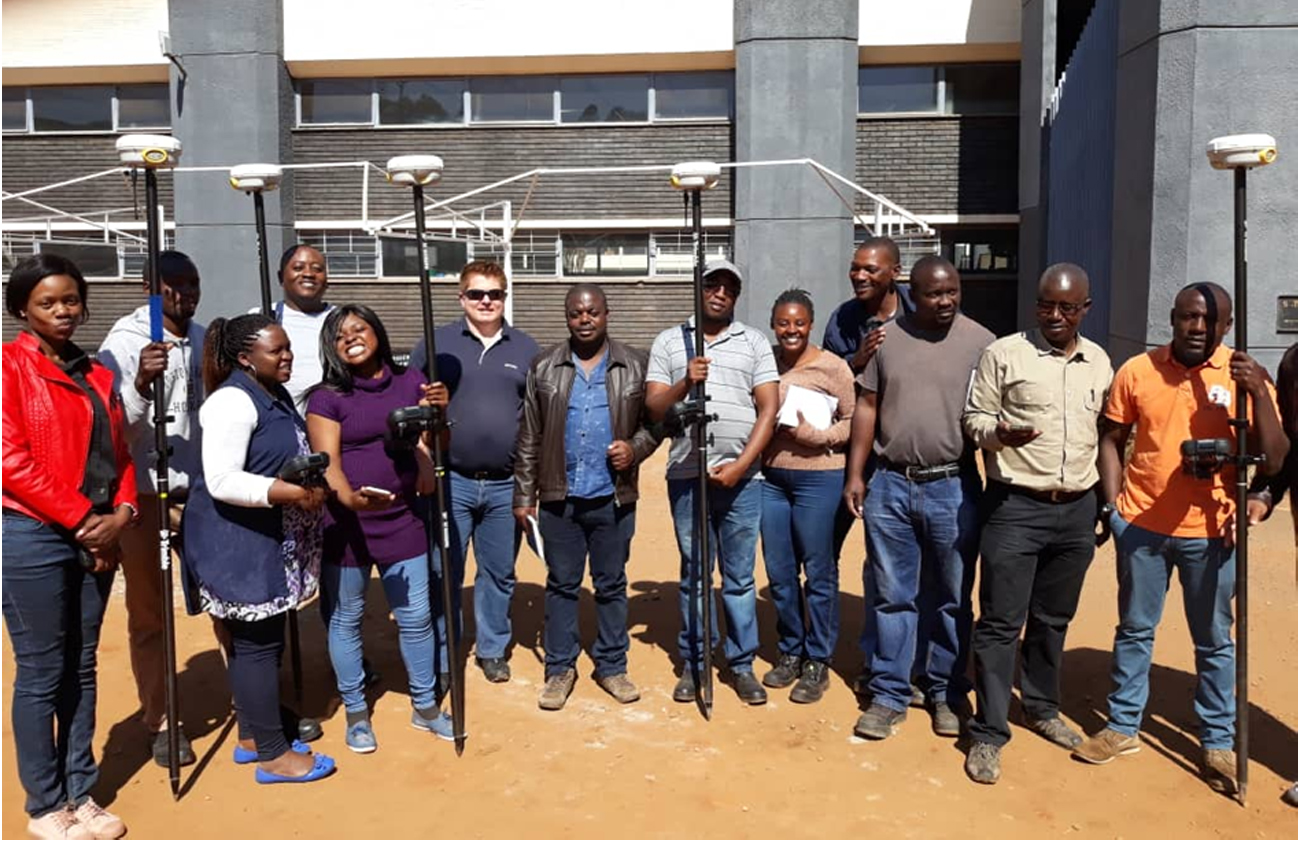 Support to Zimbabwe’s ministry in charge of lands and rural resettlement
Enhancing effective implementation of the national land-reform programme
Support to Zimbabwe’s ministry in charge of lands and rural resettlement
Enhancing effective implementation of the national land-reform programme

Challenges
Zimbabwe’s fast-track land-reform programme initiated in the year 2000 transformed the land-ownership structure in the country by transferring agricultural land from 6,400 former large-scale commercial farmers to about 163,775 newly resettled farmers. This new structure requires that the land-administration system and related policy and regulatory frameworks be strengthened to effectively respond to emerging needs. Otherwise, the expected gains of land reform risk not being achieved. Indeed, challenges that have already arisen include land insecurity, conflicts among farmers, illegal resettlements, environmental degradation and the decline of agricultural productivity and output. Consequently, the country has been experiencing problems such as food insecurity, inadequate supply of raw materials for the industry, job losses, shortage of foreign currency and overall economic decline. Lack of resources and capacities has hampered government efforts to address these challenges.
Towards a Solution
This project was implemented by Zimbabwe’s Ministry of Lands, Agriculture, Water, Climate and Rural Resettlement (MLAWCRR) and supported by the United Nations Development Programme (UNDP) and the European Union. The main objective was to support and strengthen the MLAWCRR and other implementing partners to carry out activities in line with their mandates and in a more effective, efficient and sustainable way. The aim was to accelerate the rehabilitation of the land sector and to improve the regulatory and land-management frameworks as prerequisites for the recovery and development of agriculture and other land-based economic activities.
A project management unit was established and housed at the MLAWCRR, while a working group was set up with former commercial farmers to resolve outstanding compensation issues. This step helped thaw the relationship between the government and the former farmers. Other key components of the project included:
- update of farm inventories;
- development of a consensus-based mechanism for the compensation of former commercial farmers;
- establishment of an adequate survey-control network;
- survey of medium-scale farm units (above 100 hectares each) and the update of the land information database;
- establishment and strengthening of the coordination of the Land Information Management System (LIMS) within the MLAWCRR;
- development of a dispute-resolution framework; and
- evaluation of land-tenure systems and policy recommendations.
The project’s specific achievements include the following:
- 2,881 farm inventories were carried out, providing information for the purposes of determining compensation to former large-scale commercial farmers;
- 30 MLAWCRR staff were trained in database management and a land database was implemented;
- five continuously operating reference stations (GPS base stations) were built and are operational, thus cutting the costs and time involved in mapping and surveys;
- 24 staff of the Department of the Surveyor General (DSG) were trained in image-analysis software for using satellite data for mapping;
- 557 medium-scale farms were surveyed and a draft strategy for surveying the remaining medium-scale farm units was produced;
- area networks (LANs/WANs) were established at the head offices of the MLAWCRR and DSG, and at the DSG Southerton and Bulawayo offices; 114 officers were trained in LIMS and updated the existing database;
- the MLAWCRR drafted guidelines for a functional and legally supported dispute-resolution framework, based on international good practices;
- a study of land-tenure systems and policies was produced to contribute to the development of the National Land Policy Framework; and
- the Zimbabwe Land Commission was established as a specialized body for dealing with land-related issues and a strategic plan was formulated to underlie its activities, including securing resources for land audits.
South-South study tours to Brazil and Malaysia in 2017 exposed the Zimbabwe Land Commission’s commissioners to international experiences and best practices on land reform and tenure issues, including guidelines on how to conduct land audits, which have since been developed and are being implemented in Zimbabwe. Additional South-South study tours to African countries (Kenya, Rwanda and the United Republic of Tanzania) in 2018 provided the commissioners with knowledge about different local land-governance provisions and regulations.
Contact Information
Countries involved
Supported by
Implementing Entities
Project Status
Project Period
Primary SDG
Secondary SDGs
Similar Solutions
| NAME OF SOLUTION | Countries | SDG | Project Status | |
|---|---|---|---|---|
100% Online Electronic Apostille and Legalization Sharing Colombia’s effective e-government system with other countries in the region |
Brazil, Kenya, Malaysia, Rwanda, United Republic of Tanzania, Zimbabwe | 16 - Peace and Justice Strong Institutions | Completed | View Details |
360-Degree Awareness Tool to Fight COVID-19 Raising awareness and ensuring public wellbeing through a one-stop platform for fighting COVID-19 in Bangladesh |
Brazil, Kenya, Malaysia, Rwanda, United Republic of Tanzania, Zimbabwe | 16 - Peace and Justice Strong Institutions | Ongoing | View Details |
A Billion Brains: Smarter Children, Healthier Economies High Level Meeting on South-South Cooperation for Child Rights |
Brazil, Kenya, Malaysia, Rwanda, United Republic of Tanzania, Zimbabwe | 17 - Partnerships for the Goals | Completed | View Details |
Accelerator Labs Network Following collective intelligence methods to address emerging sustainability challenges and the growing demand for local solutions |
Brazil, Kenya, Malaysia, Rwanda, United Republic of Tanzania, Zimbabwe | 08 - Decent Work and Economic Growth 13 - Climate Action | Ongoing | View Details |
Accessible Digital Textbooks Promoting inclusive education through Accessible Digital Textbooks |
Brazil, Kenya, Malaysia, Rwanda, United Republic of Tanzania, Zimbabwe | 10 - Reduced Inequalities | Completed | View Details |
